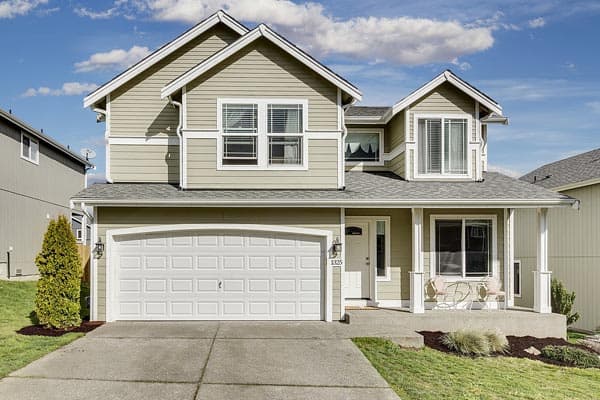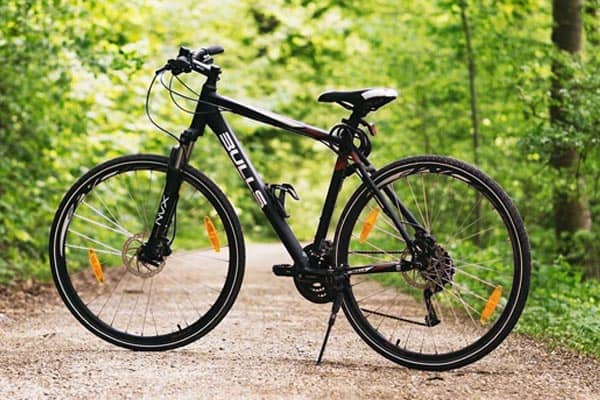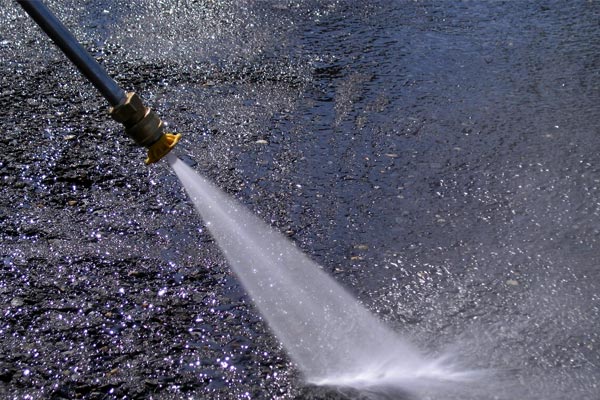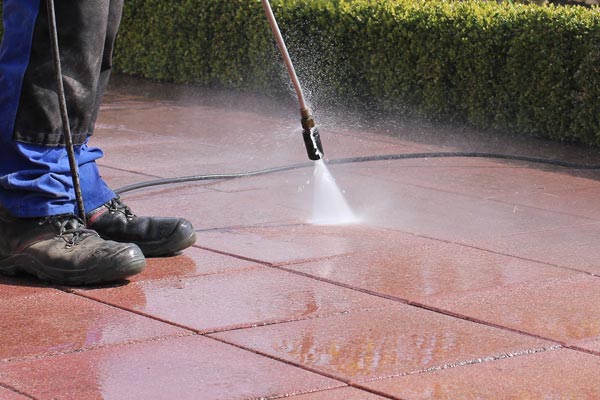Understanding How Long it Takes to Pressure Wash a Driveway
Over time, your driveway can survive a lot, from weeds to dirt, and each thing can make it look worn and old.
In turn, this can bring down the look of your entire home, and this is exactly why you should take the time to get your driveway clean and fresh by pressure washing it. But, is it safe to do so, and how long does it take?
How Long Does it take to Pressure Wash a Driveway
The time you take to clean your driveway with a pressure washer will depend on how large your driveway is and what type of cleaning equipment you have. There is really no one-size-fits-all answer, but you can assume that it’ll take around two hours to clean a driveway that is large enough to hold four cars. Remember that this number can fluctuate, and it could take as little as 30 minutes up to over four hours.
If you’re considering pressure washing your driveway and you need to know about how much time you have to set aside to complete the project, this is for you.
We’re going to outline all of the factors you should consider below to help flesh out how much time you’ll spend on completing this project.
The Average Driveway Size
For a residential home that has average dimensions and size, you would most likely find a driveway that would accommodate at least two cars.
However, many people own or keep more than a single car these days, and your driveway needs to be large enough to accommodate all of them without running out of room.
Each car should have a minimum of 10 feet wide, and a space of 18 to 20 feet long is ideal for a single car.
So, any driveway that you build to accommodate two cars should be at least 18 to 20-feet long by 20-feet wide, and you have to add between three and four feet to give yourself space to walk or stand around.
A smaller driveway that holds a single car will measure roughly 10-feet wide by 20-feet long, plus walking or standing room.
Common Driveway Grime
There are a few different types of grime that build up on driveways, and knowing what they are will help you effectively clean them off. The most common types of grime you’ll see include:
Green Algae – You may only think that you’d see this type of green algae around the sea at the beach, but it’s an aquatic plant that can spout on driveways and roofs when the conditions are bright.
Mildew – Mildew is a common fungus that appears on any surfaces like wet concrete, wood, and other areas.
Mold – Black mold or other mold types are fungal organisms that are difficult to remove using traditional cleaning products. Black mold is a common fungal problem in homes, and it usually thrives in humid and wet conditions.
Moss – Moss can be used in decorative looks in the garden, and it can also grow on other surfaces like driveways or walkways.
Oil or Grease – These are two of the hardest things to get rid of once they get on your driveway.
Organic Debris – Bird droppings, leaves, and other organic debris can end up on your driveways. A lot of these things will break down on your driveway over time, and they can release a host of acidic byproducts that can leave marks and damage your driveway’s substrate.
Soil – Soil and graven usually end up on driveways and turn muddy to stain the surface. They are usually relatively easy to get rid of, but they can mar the look of your driveway until you do.
Tire Marks – Even though you’re not squealing your tires in your driveway, they can lead to black rubber marks over time that is difficult to remove.
Should You Use Electric or Gas Pressure Washers
You can choose from gas or electric pressure washers to clean our driveway. Since this is such an expensive investment, you want to know which one is the correct choice for you.
Cost of Fuel – If you get an electric pressure washer, you can easily plug it into an outlet and use it right away, with the only cost being the electricity used. Gas-powered models need fuel before they run, so you have to go out and buy it before you start it. For some people, this is a problem they’d rather not worry about.
Ongoing Costs – Along with the fuel costs for gas-powered models, there are also more ongoing maintenance costs with gas models. Electric power washers usually don’t need much maintenance.
Portability – The biggest problem with electric models is that they get tethered to the wall with a power cord, and this affects how far they can reach. Where your outlet is will dictate this reach. Gas-powered models are much more portable because they run until they don’t have any fuel.
Power – How powerful do you want your pressure washer to be? The biggest difference between the two types is that gas models have a stronger jet of water, and this is great if you have heavier cleaning projects lined up. However, electric models still pack a decent amount of power that is far greater than a garden hose.
So, knowing what you know now about both types of pressure washers, which one is better?
If you only want to clean outside once in a while and don’t want to invest in lubricants or gasoline, an electric model is the best option.
If you need to tackle heavy-duty cleaning projects that require more power and portability, gas is the better pick.
How to Pressure Wash a Driveway – Steps
Cleaning your driveway can be simple, and all the whole project takes is a few steps. You’ll end up with a driveway that looks brand new in under a few hours.
First, make sure everything you normally have on your driveway is put away. The pressure from this machine can do a lot of damage to any toys, tools, or vehicles that you accidentally hit with it.
Next, connect the garden hose to the pressure washer pump to give it a water supply.
You’ll have to set up your machine next, and you want to ensure that the water flow and any gear you need are ready to go.
Pick any attachment tool, spray wand, or rotary tool and connect it to the pressure hose. Start the project off with a 25-degree nozzle.
Turn the pressure washer on and go over your driveway very quickly to get rid of any loose debris. If you’re going to use a detergent on your driveway, now is the time to add it.
After you apply the detergent, you should wait a few minutes before using a surface cleaner to finish the project.
The surface cleaner will let you clean a bigger driveway at a faster pace. It also creates a lower chance that your driveway will get damaged from the pressure washer.
How Long Does it Take to Pressure Wash the Driveway
There is no hard and fast answer to this question because each situation has different variables. For example, how big your driveway is will be a big deciding factor in how long it takes to clean it. The pressure washer you use is also going to play a big role.
For some people, the entire process of pressure washing the driveway can take as little as 30 minutes from start to finish.
However, this time doesn’t include the time it takes to move any vehicles or larger debris from the space. Additionally, it’ll take longer to complete if you don’t know how to use the pressure washer.
Any driveway that can fit four cars will take roughly two hours to clean using an electric pressure washer.
If you use a gas-powered unit, the same driveway will take around 30 minutes from start to finish. If you’re brand new at using a pressure washer, the process can take between four and six hours.
Is it Safe to Pressure Wash the Driveway?
One of the easiest ways to boost your home’s curb appeal is to pressure wash the driveway. The surfaces around your property, like your walkway or patio, can also benefit from pressure washing.
As long as you monitor the pressure and the distance from the surface of the concrete or asphalt, it should be okay to pressure wash the driveway without any damage.
Bottom Line
So, how long does it take to pressure wash a driveway? The answer depends on how large the driveway is, the type of pressure washer you use, and how experienced you are with this machine.
It can take between 30 minutes and 4 hours from start to finish, but you’ll get a driveway that looks new.






